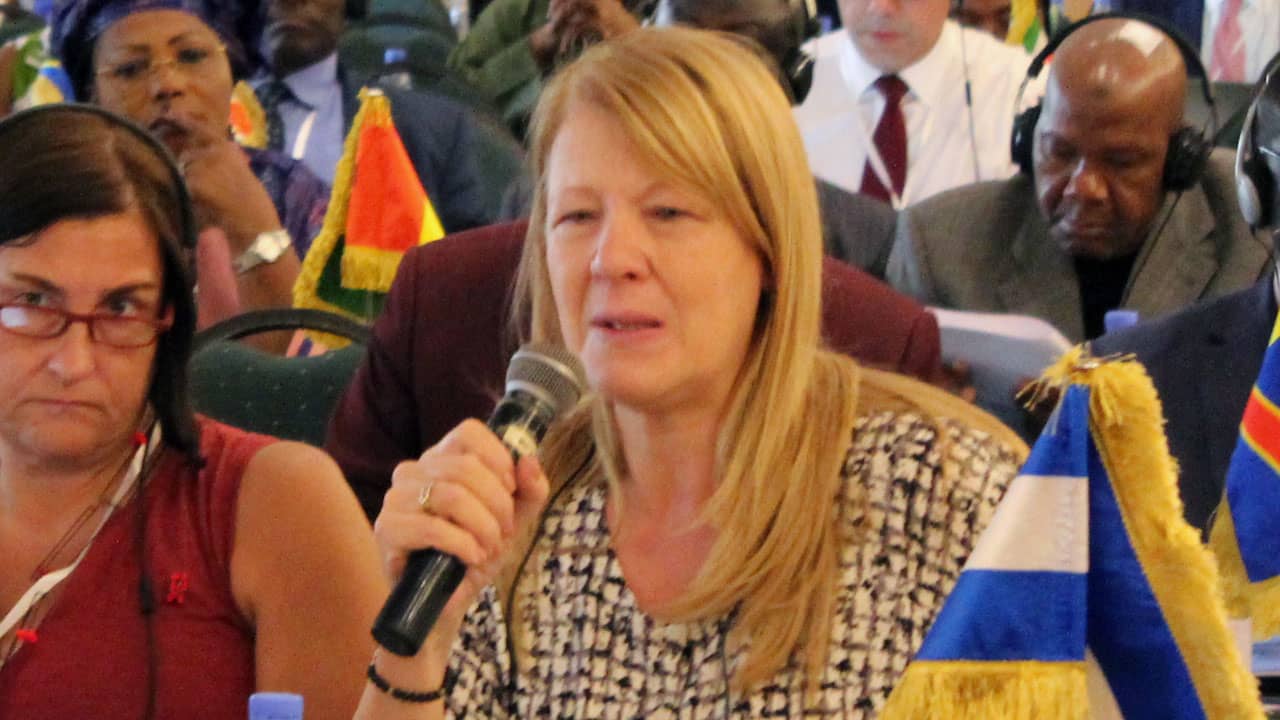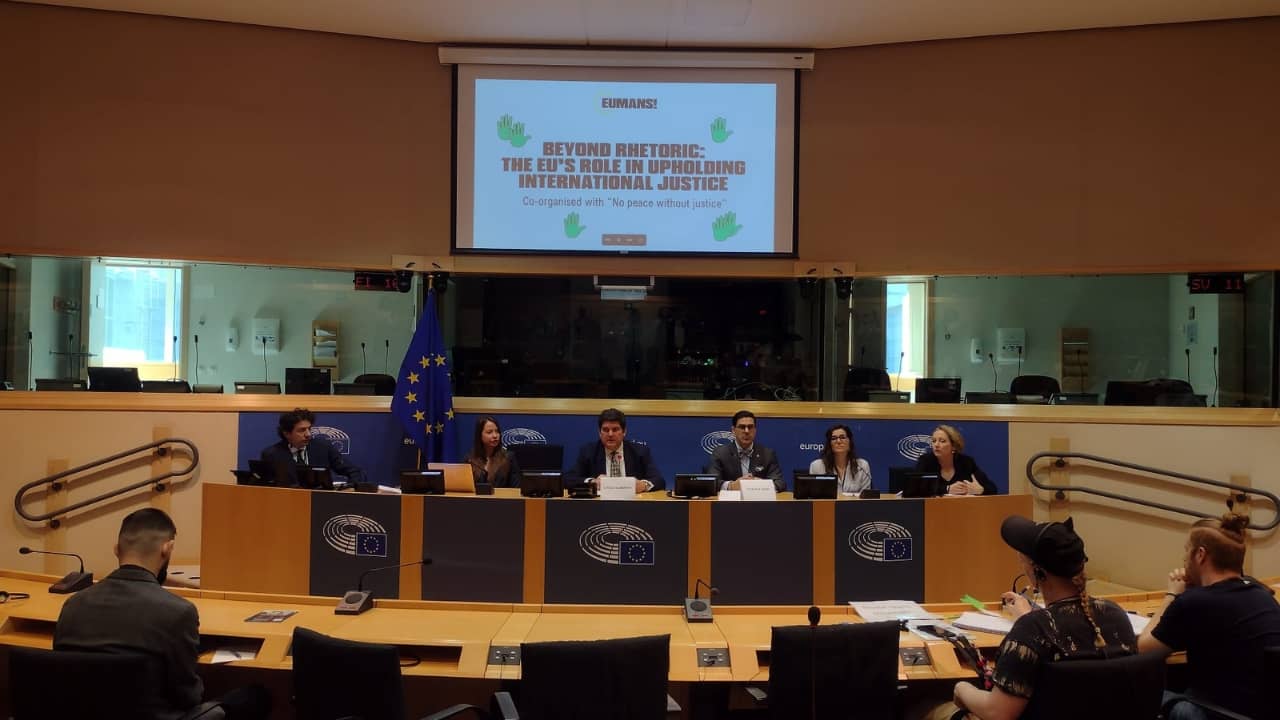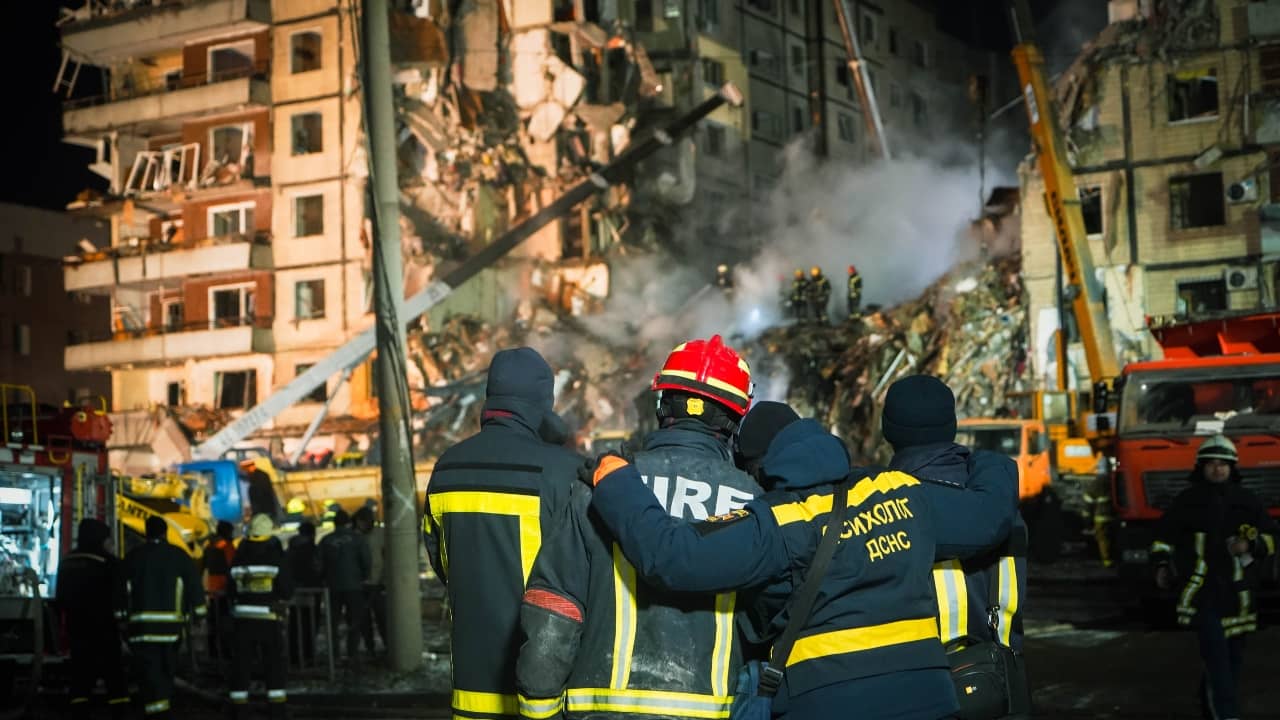
New York/The Hague/ Buenos Aires, 19 December 2016
On 15 December 2016, Parliamentarians for Global Action (PGA), in collaboration with the Chamber of Deputies and Ministry of Justice and Human Rights of Argentina, organized a Conference on the justice system created by the Rome Statute of the International Criminal Court (ICC). The Conference, hosted by the Chamber of Deputies of Argentina in Buenos Aires, aimed at providing a platform for Argentinian officials from the executive, legislative and judiciary branches to exchange and deepen their knowledge about the ICC system and its role in fighting impunity for the most serious crimes of international concern.
The Conference was chaired by Dip. Margarita Stolbizer, President of PGA. In her remarks, she highlighted that:
The Rome Statute created not only a court, but also a universal criminal justice system. The ICC is not an instance of appeal, nor a substitute for national jurisdictions. The ICC is a complementary jurisdiction, which steps in only when national courts are unable or unwilling to do so. (…) Today, Argentina is not a country which faces armed conflicts. However, we are not indifferent to what is happening in the rest of the world. We have been victims of very cruel dictatorships that violated human rights and we are convinced that if we had had an ICC, this would have not occurred.
The panelists of the Conference included ICC officials, high-level government officials of Argentina, as well as experts from academia and civil society. The opening session was addressed by Dip. Patricia Gimenez, 2nd Vice-president of the Chamber of Deputies of Argentina; Dr. Martín Casares, Under Secretary of Criminal Policy of the Ministry of Justice of Argentina; and Vice-chancellor Pedro Raúl Villagra Delgado, Secretary of Foreign Affairs of Argentina.
The panels and discussion throughout the conference focused on the following topics: (i) challenges faced by the international community regarding impunity for the most serious international crimes; (ii) implementation of the Rome Statute at national level as a tool for the reinforcement of the domestic legal framework; (iii) cooperation with the ICC and the contribution of the Rome Statute in strengthening judicial systems in the fight against impunity and (iv) the role of victims in the Rome Statute system.
During the last panel the audience benefited from the participation of Dr. Felipe Michelini, Member of the Board of Directors of the ICC Trust Fund for Victims. During his presentation, Dr. Michelini raised awareness on the important role of the victims in ICC proceedings as well on the reparations’ system created by the Rome Statute.
In the framework of the Conference, PGA also held several formal meetings with government officials of Argentina, during which avenues for further cooperation between Argentina and the ICC have been explored. Ms. Romina Morello, Legal Advisor of PGA and Ms. Antonia Pereira De Sousa, External Relations and Cooperation Officer at the ICC Registry, met with the Chief of Cabinet of the Under Secretary of the Ministry of Justice in charge of the Penitentiary System of Argentina. The meeting focused on signing of a voluntary agreement on cooperation on enforcement of sentences between Argentina and the ICC, during which the Under Secretary expressed his strong interest in proceeding with official negotiations at national level with the objective of signing the agreement.
During the meeting with the specialized Office of the Prosecution of Financial Investigations, the representatives of the Office committed to support the ICC in international networks of prosecutors as well as to maintain informal contact with the Court in order to facilitate the cooperation.
The Legal Advisor of PGA also met with the Director of Information and Investigations of the Institute of Public Policy on Human Rights of MERCOSUR in order to discuss the areas of future cooperation with PGA, which may relate to the consideration of a draft “reference-law” on cooperation with the ICC for MERCOSUR countries and raising awareness of the activities of the ICC.
The conference and the formal meetings resulted in the reaffirmation of the support for the ICC and advancement of political willingness regarding cooperation with the ICC. The commitments expressed by representatives of Argentinean institutions opened possibilities to further proceed with the negotiation and conclusion of voluntary agreements as well as adopting domestic legislation implementing the Rome Statute.




